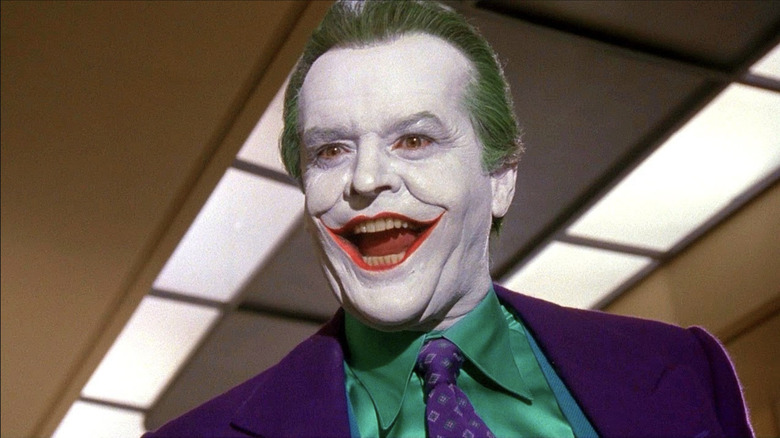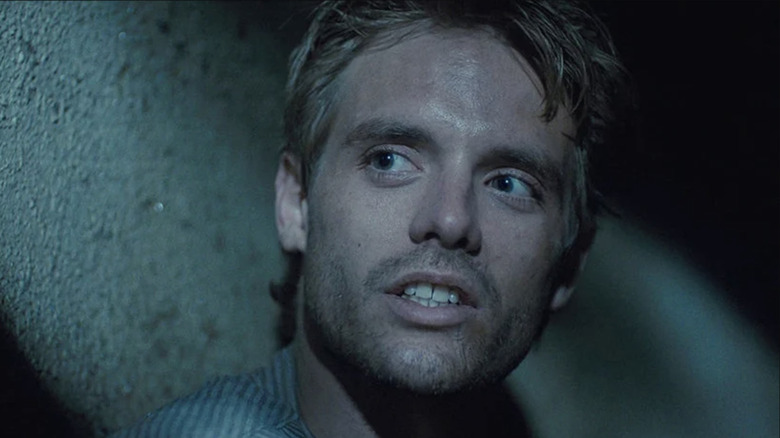There have been countless “almosts” throughout film history, stories of filmmakers and actors nearly landing movies and roles that went on to make cinema history. There are also a bevy of tales regarding just how different famous movies nearly were, whether it has to do with their stories, their endings, their marketing, and so on. 1989’s “Batman” is a flashpoint for all of these kinds of tales, in part because of how long it had been in development, and in part because of how much of a cultural juggernaut it was expected to be (and ended up becoming). There have been all sorts of wild anecdotes about the film’s production told over the years, everything from how the ending of the film was partially inspired by Andrew Lloyd Webber’s “The Phantom of the Opera” to how Prince, George Michael, and Michael Jackson were at one point due to collaborate on original songs for the movie.
Famously, the casting of Batman and The Joker was a big point of interest when the film was being put together, and much controversy surrounded director Tim Burton’s choice of Michael Keaton for Batman/Bruce Wayne. Although fans seemed far happier with the idea of Jack Nicholson essaying the role of Joker, there were other actors talked about at the time which certain folks felt would’ve been just as good, if not superior, to Nicholson. According to actor Michael Biehn on a recent episode of his podcast “Just Foolin’ About…with Michael Biehn,” the pairing of Keaton and Nicholson was one of two contenders for the lead roles of “Batman.” The other was himself as Bruce Wayne/Batman and Robin Williams as Joker, and one wonders about what “Batman” 1989 would’ve looked like had Burton gone that direction instead.
A Biehn/Williams ‘Batman’ could’ve been much grittier then Keaton/Nicholson
The “Batman” that Tim Burton ended up making starring Keaton and Nicholson was praised upon release for taking the character and the material seriously, with Burton paying homage to and taking inspiration from various dark, dramatic, then-recent graphic novels like Frank Miller’s “The Dark Knight Returns” and Alan Moore and Brian Bolland’s “The Killing Joke” instead of the deliberately comedic 1966 “Batman” television series. While the film doesn’t seem nearly as grounded and gnarly nowadays as, say, Christopher Nolan’s “The Dark Knight” or Matt Reeves’ “The Batman” do, it was certainly doing something with the character that wasn’t intended as parody. It’s also the version of the movie that is unquestionably Burton’s vision. While his sequel, “Batman Returns,” would take the character into a more unfiltered Burtonesque realm, “Batman” is still quintessential Burton in the way it tells a story about misfit characters whose quirks and oddities cannot be contained.
In that way, it’s possible that a “Batman” starring Biehn and Williams could’ve been less Burtonesque and more dark and gritty, years before those words began to be applied to “Batman” movies. Even though Biehn had made a name for himself as a square-jawed action hero thanks to his roles in “The Terminator” and “Aliens,” one need only look at his performances in films like “The Fan,” “Rampage,” “The Abyss” and “Tombstone” to see the quirky darkness he could bring to the screen, a quality that probably got Burton excited about him as Batman. Of course, Robin Williams was already very famous at the time for his comedic genius, but his intensity and willingness to go dark in future films like “One Hour Photo” and “Insomnia” had yet to be tapped in the late ’80s. Thus, we could’ve gotten a pretty darn dark “Batman” with those two actors in the leads, one which kept the shadowy cinematography and production design of the eventual film without the levity that Keaton and Nicholson helped bring to it.
Of course, we’ll never know for sure — there’s a chance that Burton could’ve elicited very tonally similar performances from Biehn and Williams, or that the actors may not have lived up to their roles in the same fashion that Keaton and Nicholson did. One of the tenets of “almosts” and “what ifs” one needs to keep in mind is that, although something that almost happened could’ve been great, it would’ve been different, and therefore potentially not as impactful or influential or, maybe, even good. Still, these sorts of things are fun to think about, and you never know — Biehn would still be interesting to cast for an older Batman! In Hollywood, never say never.









